References
advertisement
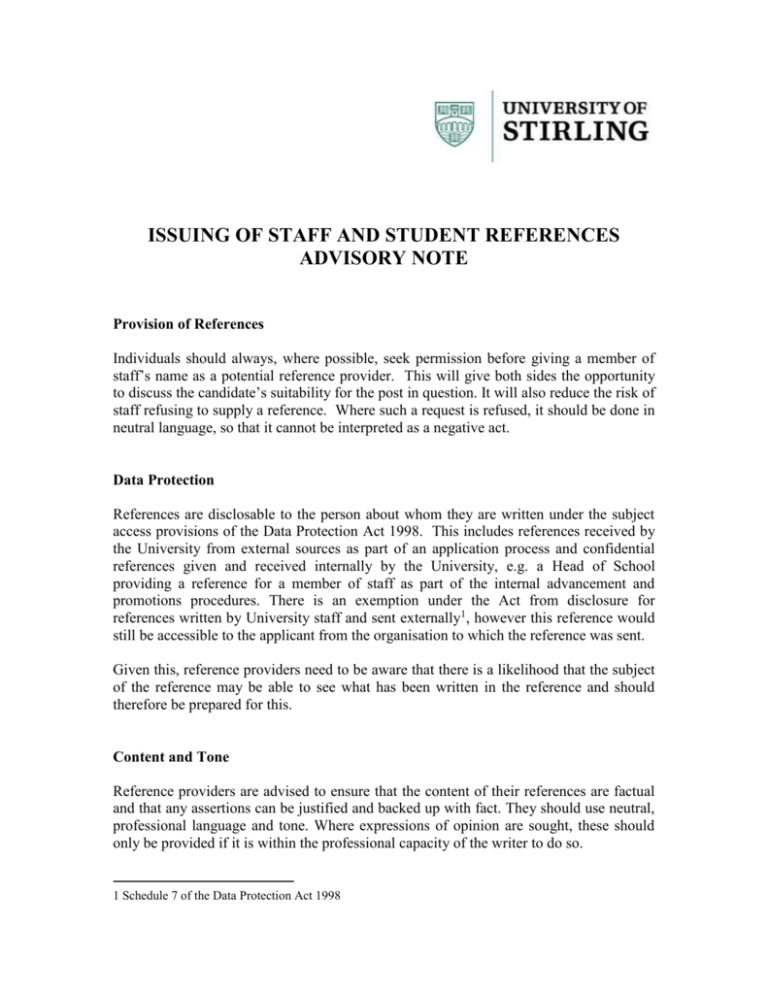
ISSUING OF STAFF AND STUDENT REFERENCES ADVISORY NOTE Provision of References Individuals should always, where possible, seek permission before giving a member of staff’s name as a potential reference provider. This will give both sides the opportunity to discuss the candidate’s suitability for the post in question. It will also reduce the risk of staff refusing to supply a reference. Where such a request is refused, it should be done in neutral language, so that it cannot be interpreted as a negative act. Data Protection References are disclosable to the person about whom they are written under the subject access provisions of the Data Protection Act 1998. This includes references received by the University from external sources as part of an application process and confidential references given and received internally by the University, e.g. a Head of School providing a reference for a member of staff as part of the internal advancement and promotions procedures. There is an exemption under the Act from disclosure for references written by University staff and sent externally1, however this reference would still be accessible to the applicant from the organisation to which the reference was sent. Given this, reference providers need to be aware that there is a likelihood that the subject of the reference may be able to see what has been written in the reference and should therefore be prepared for this. Content and Tone Reference providers are advised to ensure that the content of their references are factual and that any assertions can be justified and backed up with fact. They should use neutral, professional language and tone. Where expressions of opinion are sought, these should only be provided if it is within the professional capacity of the writer to do so. 1 Schedule 7 of the Data Protection Act 1998 “A Duty of Care” Reference providers have a prescribed legal “duty of care” towards the person to whom the reference relates2. This effectively means that they must take reasonable care to provide a reference which is neither false nor inaccurate and should also take reasonable care not to provide misleading information. Failure to provide such a duty of care may result in the subject pursuing either/or both the individual reference provider and the University for damages, if they can demonstrate that they have sustained losses due to the negligence of the reference provider through carelessness or inaccuracy. Adopting a Policy/Best Practice Approach on the Provision of References In light of recent case law and the impact of the Data Protection Act, it is important that the University’s position on references, in every respect, is abundantly clear and that it is open and transparent in its dealings with staff and students as well as external reference providers. To this end, it is advised that the University should adopt a policy/best practice approach on the provision and acceptance of references and this should be disseminated accordingly. This could be done by ensuring that when requests for references are sent out, a note requiring reference providers to indicate their willingness (or unwillingness) for the reference to be released to the subject is routinely included. However, it would still be possible for the University to release the information, despite the wishes of the reference provider, if they felt it reasonable to do so. NB. Even if the reference provider did state they were unwilling to allow the text of the reference to be disclosed, the University would still be required to ascertain whether it would be possible to release the text, through redaction, and still conceal the identity of the reference provider3. Alternatively, the University may decide to include a note with reference requests stating that it is University policy to disclose all references on request, to the subject of the reference. Such a policy would be regardless of the reference provider’s wishes and it would therefore be their own decision whether they wished to still provide a reference, given that there was a high probability that the reference would be disclosed. 2 Spring v Guardian Assurance plc [1995] 2AC 296 HL Bartholomew v London Borough of Hackney [1999] IRLR 246 CA. 3 S. 7(4) of the Data Protection Act 1998. Open References Finally, staff should be encouraged, where possible, to write open references, which are seen be the subjects before they are sent. This option has the advantage of openness and transparency and reduces any possible risk of litigation, either against the reference provider or the University. Records Management Office August 2006
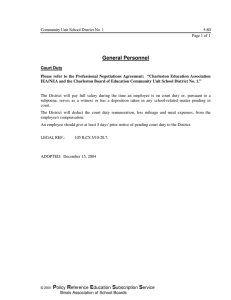


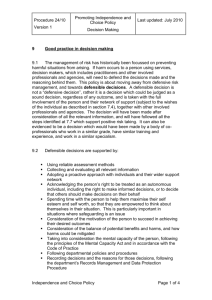

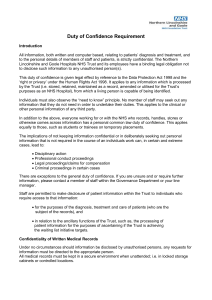



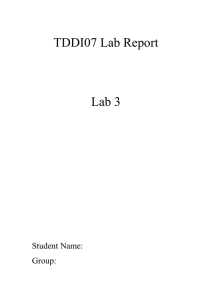

![(NPD-60) []](http://s3.studylib.net/store/data/007320126_1-47edb89d349f9ff8a65b0041b44e01a8-300x300.png)